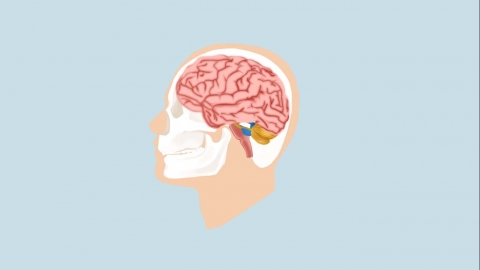How to treat cerebral nerve dysfunction
Dysfunction of cranial nerves may be caused by aging, neurodegeneration, brain injury, infection, Parkinson's disease, and other factors. It can usually be treated through general therapy, rehabilitation training, medication, and other methods. If abnormalities occur, timely medical attention is recommended. A detailed analysis is as follows:

1. Aging: With increasing age, brain nerve cells gradually age and their function declines, which may lead to cranial nerve dysfunction. It is recommended to maintain regular作息 (作息 translates as作息 habits or routines), engage appropriately in mental activities such as reading and playing chess to delay nerve aging.
2. Neurodegeneration: Accelerated natural degeneration of brain nerve cells leads to abnormal nerve conduction function, causing cranial nerve dysfunction. A balanced diet rich in protein and vitamins should be emphasized to provide nutrients for nerve cells.
3. Brain injury: External impact to the head damages brain nerve tissue, leading to dysfunction, often accompanied by symptoms such as headache, vomiting, limited limb movement, and memory decline. It is recommended to use medications such as Methylprednisolone Sodium Succinate for injection, Oxiracetam Injection, and Mecobalamin Tablets under a doctor's guidance, along with rehabilitation training.
4. Infection: Viral or bacterial infections that affect cranial nerves, such as viral encephalitis, trigger inflammatory responses leading to nerve dysfunction, often accompanied by symptoms such as fever, headache, vomiting, and confusion. Doctors may recommend treatment with Acyclovir Injection, Ceftriaxone Sodium for injection, and Mannitol Injection.
5. Parkinson's disease: Degenerative lesions of brain nerve cells lead to reduced dopamine secretion, causing cranial nerve dysfunction, often accompanied by tremors, muscle rigidity, and progressive disease course. Patients are advised to follow medical instructions to use medications such as Levodopa and Benserazide Tablets, Pramipexole Hydrochloride Tablets, and Entacapone Tablets to alleviate symptoms and slow progression.
In daily life, it is important to protect the head from injury and actively manage underlying conditions such as blood pressure and blood sugar levels. If symptoms related to cranial nerve dysfunction occur, prompt medical consultation is advised to identify the cause and receive targeted treatment.





